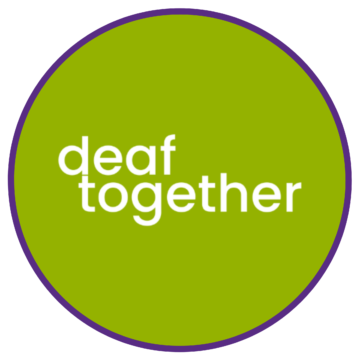In late May, UK Prime Minister Rishi Sunak announced that a General Election would take place on Thursday 4 July 2024.
No matter who you are or what your background is, voting is important. You have the opportunity to raise your opinion and say who you want to run the country.
There shouldn’t be any barriers to voting, but sadly sometimes there are. For many deaf people, BSL is our first language and it is vital that we have access to important information in our preferred language.
We want General Election 2024 to be accessible for all. We have already written to the Conservatives, Labour and Liberal Democrats, asking them to make BSL versions of their manifestos.
We are also calling for all future General Election debates and interviews with party leaders to be BSL accessible. It is vital that the deaf community are able to make informed political choices.
Understanding where candidates stand on important health issues such as funding for the NHS, mental health services, public health initiatives, and healthcare accessibility allows voters to choose parties that align with their health priorities and needs.
How do I vote?
The General Election takes place on Thursday 4 July. But that doesn’t mean you can just forget about it until then!
We think it is SO important for everyone in the deaf community to vote. Voting can make a difference!
Key dates
You need to register to vote before Tuesday 18 June at 11:59pm: gov.uk/register-to-vote.
A BSL video from the Electoral Commission explains more.
If you want to vote by post, you can do so by 5pm on Wednesday 19 June: gov.uk/apply-postal-vote
And on Wednesday 26 June at 5pm there are two deadlines:
- If you don’t have photo ID, you can apply online: gov.uk/apply-for-photo-id-voter-authority-certificate
- And if you want to legally request that someone votes on your behalf, you can do so here: gov.uk/apply-proxy-vote
SignHealth has three key asks for the next government
Invest in deaf mental health services for all ages
Mental health services for deaf people are underfunded and often lack comprehensive pathways and specialist provisions. The absence of dedicated services and trained specialists means that deaf people face significant barriers in accessing appropriate mental health care. The Shaping the Future of deaf mental health report highlights these barriers and demonstrates the urgent need for increased investment to ensure that mental health support is accessible and effective for deaf people of all ages.
Include deaf people in decision-making
Involving deaf people in the design and delivery of healthcare services ensures these services meet their needs. By incorporating the insights and experiences of deaf people, healthcare providers can develop a deeper understanding of the unique challenges faced by this community. This collaborative approach leads to the creation of healthcare services fit for purpose, improving access and outcomes for deaf patients. The NHS England Rapid Review of British Sign Language Interpreting Services includes 17 recommendations for Integrated Care Boards (ICBs) to follow, offering guidance on effectively engaging with the deaf community and ensuring their needs are met.
Increase access to healthcare for all deaf people
Deaf people frequently encounter significant barriers in accessing healthcare, resulting in inequitable treatment. Our Review of the Accessible Information Standard reveals that many deaf people struggle to make appointments, often arrive at appointments without the necessary support, and face difficulties in lodging complaints. These obstacles highlight the need for systemic changes to ensure that healthcare services are fully accessible to deaf people, providing them with the same quality of care available to the hearing population. When referring to “equity” we recognise that each person has different circumstances and that the exact resources and opportunities needed to reach an equal outcome should be allocated.
Fantastic to have our Children and Young People’s Team involved in the making of these videos because we want to see these changes in place for the deaf community today and for generations to come.
Supporting research and other key documents are available on our Resources Page.





